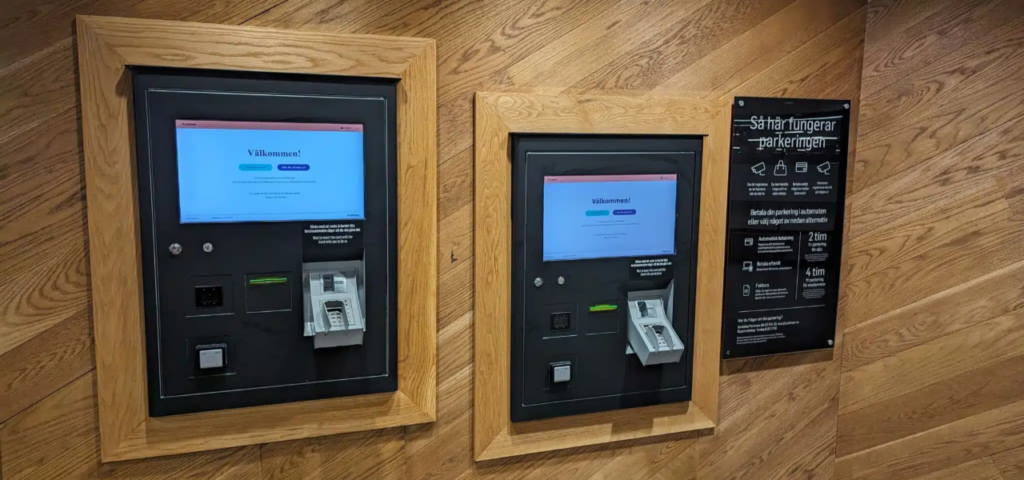QR codes have become a game-changer in a wide range of businesses in the rapidly changing world of technology. QR codes have helped organizations interact with customers, improve user experience, and increase operational efficiency in a variety of industries, including retail, healthcare, travel, and education. However the design of kiosks is one area where QR code technology is having a big influence.
Therefore, the use of QR codes is reimagining kiosks, which have long been utilized for digital engagement, information retrieval, and self-service transactions. Companies can provide a more dynamic, frictionless, and seamless customer experience by fusing the ease of QR codes with the adaptability of kiosks.
The Role of QR Codes in Modern Kiosk Designs
QR codes are two-dimensional barcodes that can store a wealth of information, including website links, product details, promotional offers, and payment options. When scanned with a smartphone or a tablet, they instantly connect users to the relevant information or service. However, this technology is now becoming an integral part of modern kiosk designs, and for good reason.
- Enhanced User Experience: QR codes allow businesses to streamline the interaction process. Instead of forcing customers to navigate complex touchscreens or wait in long lines for assistance, they can simply scan a QR code to instantly access information or perform tasks like placing an order, making a payment, or checking in. Therefore this makes the entire process more efficient and convenient.
- Contactless and Hygienic: In the wake of the COVID-19 pandemic, businesses have prioritized contactless solutions to reduce the risk of transmission. By integrating QR codes into kiosk designs, customers no longer need to physically touch a screen to interact with the kiosk. Instead, they can simply scan the QR code from a distance, promoting a more hygienic, safe, and user-friendly environment.
- Personalization and Customization: QR codes allow kiosks to offer a more personalized experience. For example, a user could scan a QR code that leads them to a personalized digital menu, special promotions, or tailored recommendations based on their previous preferences. This level of customization helps businesses engage customers more effectively and fosters brand loyalty.
- Seamless Payments and Transactions: Many modern kiosks have incorporated payment systems via QR codes. Instead of carrying cash or credit cards, users can scan a QR code to make payments directly from their smartphones. However this simplifies the payment process, speeds up transactions, and offers greater convenience for customers.
Applications in Various Industries
There is no industry-specific restriction on the usage of QR code technology in kiosks. Numerous industries are utilizing QR codes to improve their kiosk experiences:
- Retail: Consumers may read reviews, access product data, and even make purchases by scanning QR codes. Smooth shopping experiences are now possible thanks to more interactive in-store kiosks.
- Healthcare: By scanning QR codes at medical kiosks, patients can check in, view health records, or receive appointment reminders, enhancing patient flow and operational effectiveness.
- Food & Beverage: By enabling customers to place orders, pay, and scan QR codes for digital menus, restaurant kiosks shorten wait times and improve the eating experience.
- Travel & Tourism: By using QR codes for boarding passes, ticket retrieval, and self-check-in, airport kiosks create a more effective and streamlined travel experience.
The Future of Kiosk Designs with QR Code Technology
The use of QR codes in contemporary kiosk designs is expected to increase as companies look for new and creative methods to improve client interaction and expedite processes. Therefore, QR codes will continue to be a crucial tool for companies trying to enhance user experience as mobile-first experiences and contactless solutions become more popular.
In addition to offering ease and security, integrating QR code technology into kiosk designs helps businesses stand out in a market that is becoming more and more competitive. Therefore QR codes have the ability to improve customer contact and satisfaction in a wide range of settings, including retail establishments and public services.
Visit creativeroots.ae, your go-to resource for the most recent developments in design and innovation, for additional information on how technology is influencing consumer experiences.

